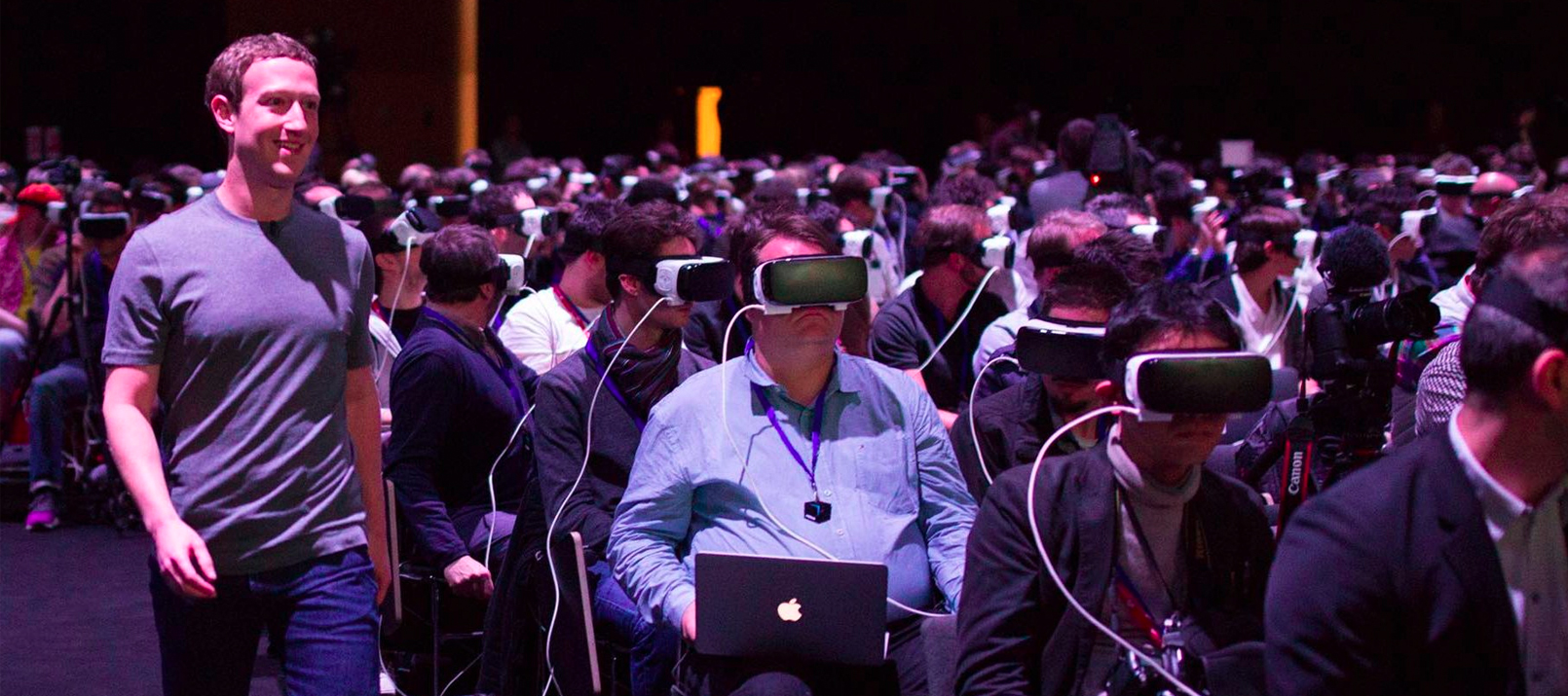26 March 2016 Virtual Reality is a Fad
 A depressing glimpse into the future.
A depressing glimpse into the future.
Virtual Reality is so hot right now. Facebook, Samsung and Sony have all announced consumer headsets to drop in the next few months and it was all anyone could talk about at SxSW this year. Presenters spoke to its potential, exhibitors showcased new hardware and software, and every brand used it as part of their activation. (You could ride a virtual roller coaster with Samsung, race a virtual bike with IBM or paint virtual 3D art with McDonald’s.)
But here’s a few potential problems I’ve noticed:
- The screen resolution still sucks
- It’s nauseating (called simulator-sickness)
- Blinded users were running into walls or getting tangled in cables
- The headsets are awkward and heavy (well at least on my big head)
- It’s hard to take a selfie when you’re wearing a headset (actual problem for social norming)
- People have greasy foreheads and noses (hurts shareability)
No doubt, VR will have many uses. It’s fairly disruptive (for want of a better word) when it comes to activations. Education feels like a rich territory. And of course, as with most tech, the best uses are often not discovered until they land in the hands of smart consumers.
But VR will only take off if there’s a headset in every home. And the big players are banking on this (given their billion dollar investments). They think the answer is gaming, and have built their penetration strategies accordingly; Facebook’s Oculus Rift in partnership with Xbox, Sony’s VR through Playstation and Samsung’s Gear through the Galaxy mobile.
Here’s the thing, the bullet points listed above can all likely be addressed in future generations. The fundamental problem is not with the tech, but the experience. VR gaming is novelty, and will quickly grow old. Like the short-lived bell curve graph of Nintendo Wii’s sales, VR is a fad. Gamers do not need or want a more immersive experience. I suspect it’s the same for VR porn (although I’ve not yet tried it).
Of course that doesn’t mean you shouldn’t explore this space. When Coke changes is packaging to create cardboard VR headsets, they don’t need anyone to actually use it. The campaign video is more important than the product, and by the time it hits market, PR has already done what it was meant to. Gimmicks like this don’t necessarily need adoption to be successful (especially not for award case studies).
Long-term, I’m pessimistic when it comes to consumer adoption. It’s rather easy for someone to call you out when you blog a prediction, but if I had to put money on it I’d say after a burst of sales from early adopters, numbers will crash and burn. And in 18 months there’s going to be a rather large supply of second-hand VR headsets collecting dust.
While I’m being skeptical, anyone else hate 360 degree video?

Dara Lin
Posted at April 14, 2016 6:13pm, 14 AprilI think the VR (virtual reality) technology today is the one which is a fad. VR technology today is more of an experiment, the companies like Samsung are trying to know the problems like you said so that they can improve the device. This technology will be very helpful to us in terms of military (mapping), medicine (education), and especially in engineering courses. The benefits of this technology is countless. I will recommend this article for those VR technology enthusiast so that they could help in improving this technology.